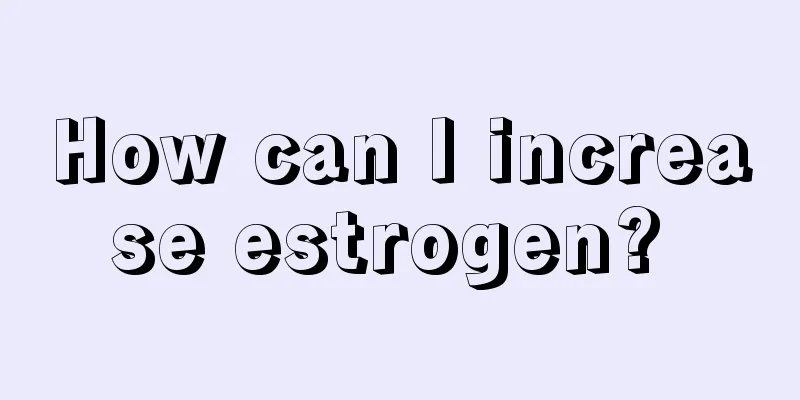What are the roles and functions of the kidneys?

|
The kidney is a very important part of the human body, but many people suffer from kidney deficiency, abnormal urination, kidney pain, fatigue, sweating, physical weakness, etc. These may be caused by kidney discomfort. If you feel kidney discomfort, go to the hospital for examination and treatment in time. Drink more warm water, eat black beans, dog fart, black rice, etc. to maintain your kidneys. Many people still don’t understand the functions and effects of the kidneys. Next, let’s take a look at the roles and functions of the kidneys. 1. Physiological functions of kidneys The body carries out complex biological metabolism every day, taking in foreign substances and breaking them down and synthesizing them to meet the body's needs. At the same time, various metabolites produced by the body's metabolism must be excreted, and the excretion of these metabolites and toxic substances is mainly completed by the kidneys. 2. Function Introduction The body carries out complex biological metabolism every day, taking in foreign substances and breaking them down and synthesizing them to meet the body's needs. At the same time, various metabolites produced by the body's metabolism must be excreted, and the excretion of these metabolites and toxic substances is mainly completed by the kidneys. The physiological functions of the kidneys mainly include three aspects. 3. Urine Production In a normal person, the blood flow through the kidneys on both sides accounts for 1/4-1/5 of the total body blood flow. The amount of plasma filtered by the glomerulus per unit time is called the glomerular filtration rate. The glomerular filtration rate of a normal adult is about 120 ml per minute. The total amount of plasma filtered from the glomeruli of both kidneys reaches 150-180L per day. The filtered portion of plasma is called primary urine. When the primary urine flows through the renal tubules and collecting ducts, about 99% of it is reabsorbed. Therefore, only about 1500 ml of primary urine is excreted from the body. Glucose, amino acids, vitamins, polypeptides and a small amount of protein are almost completely absorbed in the proximal convoluted tubules. In addition, the renal tubules can directly excrete certain drugs and poisons. 4. Urine production process It regulates the balance of electrolytes and acid-base. A large amount of acidic substances and a small amount of alkaline substances produced by the human body during the digestion of food and the metabolism of sugar, fat and protein in the body are first released into the blood and then excreted from the body. Among them, acidic substances are the main excluded substances. The glomerular filtrate contains a variety of electrolytes. When it enters the renal tubules, most of the sodium, potassium, calcium, magnesium, bicarbonate, chloride and phosphate ions are reabsorbed. The amount absorbed is regulated by neuroendocrine and humoral factors according to the needs of the human body. The kidneys are slow in regulating acid-base balance, but can fully regulate changes in plasma pH. [1] 5. Endocrine function The kidneys can produce certain hormone-like physiologically active substances, mainly vasoactive substances, erythropoietin and 1,25-dihydroxyvitamin D3. ① Vasoactive substances include renin, bradykinin-releasing enzyme, kinin system and prostaglandins. 95% of renin comes from the juxtaglomerular apparatus, which is the site of synthesis, storage and release of renin. Renin can be converted into angiotensin I, II, and III. 90% of kallikreins come from proximal tubule cells. Kallikreins also exist in the kidneys and can inactivate kinins. Therefore, kinins are a tissue hormone that acts locally. Prostaglandins (PG) have a strong vasodilator effect and play an important role in the regulation of blood pressure and body fluids. They can also cause diuresis and sodium excretion, thereby lowering arterial pressure. ② Erythropoietin (EPO): 90% of EPO is produced by the kidneys, and about 10% is produced in organs such as the liver and spleen. EPO is a glycoprotein that binds to specific receptors on erythroid progenitor cells, accelerating the maturation and release of immature red blood cells in the bone marrow, and promoting the entry of bone marrow reticulocytes into the circulation, thereby increasing red blood cell production. ③ 1,25-dihydroxyvitamin D3 Its main physiological effects are: promoting the absorption of calcium and phosphorus by the intestine; promoting the absorption of calcium and phosphorus in bones and the deposition of bone salts. At the same time, the kidneys can inactivate gastrin, insulin, parathyroid hormone, etc. Renal insufficiency, reduced gastrin inactivation and increased gastrin can induce peptic ulcer. References |
<<: What are the effects and functions of calcium magnesium tablets?
>>: What are the main functions of Maca?
Recommend
What should I do about cervical precancerous lesions? What are the symptoms of cervical precancerous lesions?
Cervical cancer is a malignant tumor that serious...
How to treat pain from lung cancer bone metastasis?
When lung cancer metastases to the bone and cause...
How does thyroid cancer cause throat obstruction?
Thyroid cancer may cause throat obstruction, whic...
What is sinus arrhythmia? These things cannot be ignored
Sinus arrhythmia is a common heart disease in lif...
Symptoms of nasal polyps and nasopharyngeal cancer
What are the symptoms of nasal polyps and nasopha...
Do you squat to practice jumping? Two common types of jumping
Jumping is a very good exercise, and it can also ...
Reasons why women don't want to get married
There are many reasons why women don't want t...
There are seven kinds of food in the refrigerator. Common knowledge you must know about home life
Nowadays, every household has a refrigerator, and...
Healthy diet for testicular cancer patients
In today's life, diet therapy not only has a ...
Count the specific symptoms of prostate cancer patients
Prostate cancer is a common tumor disease that af...
Can watermelon be eaten with grapes?
When we think of summer, we think of air conditio...
What is the precursor of lung cancer caused by jelly sputum
Jelly sputum is not necessarily a precursor to lu...
The driving force of pulmonary ventilation is
Pulmonary ventilation in our lives is caused by a...
The ears popped with a pinched nose and puffed air
Sometimes, when you pinch your nose and blow air ...
What is the use of expired pure milk
We know that people who loved beauty in ancient t...









